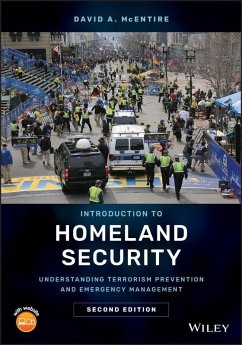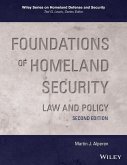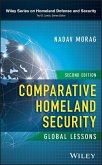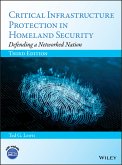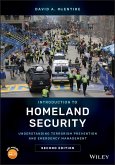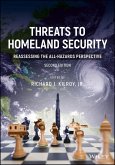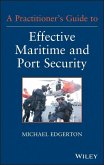Introduces readers to the world of homeland security and provides them with up-to-date information on recent attacks, new terrorist threats, visible terrorist organizations, current dilemmas, updated research, and best practices This book provides comprehensive coverage of issues relating to terrorism, terrorist behavior, homeland security policies, and emergency management. It offers a foundation that spans the readily apparent chasm between the homeland security and disaster communities, and covers the stages of emergency management with a focus on terrorism prevention and response. Based on both the academic literature and practical understanding, the book includes research findings, covering theory and principles as well as their application. Introduction to Homeland Security: Understanding Terrorism Prevention and Emergency Management, Second Edition teaches how to define homeland security, understand how it changed after 9/11, and explore its relationship with emergency management; recognize the causes of terrorism and what prompts people to engage in terrorist attacks; assess the trade-offs between security and rights, and understand how terrorism exploits the tension between these two priorities; work to prevent terrorist attacks through intelligence gathering, by promoting laws that prohibit terrorism, and by protecting borders and various sectors of society; prepare for a terrorist attack by creating an advisory council, passing ordinances, acquiring monetary resources, and establishing an EOC; effectively respond to a terrorist attack through the many functions involved, including the protection of first responders and the decontamination of the victims; recover from a terrorist attack through both short-term and long-term measures; anticipate the current challenges faced in homeland security; and comprehend the various types of attacks that might take place in the future. The second edition: * Covers the four traditional phases of emergency response, with a focus on terrorism prevention and infrastructure protection * Includes new content such as recent domestic and international terrorist attacks including the attacks in Paris and Boston * Has a strong "practitioner" approach and draws upon a solid foundation of academic literature in the field * Discusses the roles and responsibilities of government agencies, non-government organizations, and individual citizens Introduction to Homeland Security is an excellent book for all scholars, students, and practitioners interested or involved in homeland security and emergency management.
Dieser Download kann aus rechtlichen Gründen nur mit Rechnungsadresse in A, B, BG, CY, CZ, D, DK, EW, E, FIN, F, GR, HR, H, IRL, I, LT, L, LR, M, NL, PL, P, R, S, SLO, SK ausgeliefert werden.

